- Home
- Herman Melville
Israel Potter. Fifty Years of Exile Page 2
Israel Potter. Fifty Years of Exile Read online
Page 2
Paid off at last, Israel bought a gun and ammunition, and turned hunter. Deer, beaver, etc., were plenty. In two or three months he had many skins to show. I suppose it never entered his mind that he was thus qualifying himself for a marksman of men. But thus were tutored those wonderful shots who did such execution at Bunker's Hill; these, the hunter-soldiers, whom Putnam bade wait till the white of the enemy's eye was seen.
With the result of his hunting he purchased a hundred acres of land, further down the river, toward the more settled parts; built himself a log hut, and in two summers, with his own hands, cleared thirty acres for sowing. In the winter seasons he hunted and trapped. At the end of the two years, he sold back his land-now much improved-to the original owner, at an advance of fifty pounds. He conveyed his cash and furs to Charlestown, on the Connecticut (sometimes called No. 4), where he trafficked them away for Indian blankets, pigments, and other showy articles adapted to the business of a trader among savages. It was now winter again. Putting his goods on a hand-sled, he started towards Canada, a peddler in the wilderness, stopping at wigwams instead of cottages. One fancies that, had it been summer, Israel would have travelled with a wheelbarrow, and so trundled his wares through the primeval forests, with the same indifference as porters roll their barrows over the flagging of streets. In this way was bred that fearless self-reliance and independence which conducted our forefathers to national freedom.
This Canadian trip proved highly successful. Selling his glittering goods at a great advance, he received in exchange valuable peltries and furs at a corresponding reduction. Returning to Charlestown, he disposed of his return cargo again at a very fine profit. And now, with a light heart and a heavy purse, he resolved to visit his sweetheart and parents, of whom, for three years, he had had no tidings.
They were not less astonished than delighted at his reappearance; he had been numbered with the dead. But his love still seemed strangely coy; willing, but yet somehow mysteriously withheld. The old intrigues were still on foot. Israel soon discovered, that though rejoiced to welcome the return of the prodigal son-so some called him-his father still remained inflexibly determined against the match, and still inexplicably countermined his wooing. With a dolorous heart he mildly yielded to what seemed his fatality; and more intrepid in facing peril for himself, than in endangering others by maintaining his rights (for he was now one-and-twenty), resolved once more to retreat, and quit his blue hills for the bluer billows.
A hermitage in the forest is the refuge of the narrow-minded misanthrope; a hammock on the ocean is the asylum for the generous distressed. The ocean brims with natural griefs and tragedies; and into that watery immensity of terror, man's private grief is lost like a drop.
Travelling on foot to Providence, Rhode Island, Israel shipped on board a sloop, bound with lime to the West Indies. On the tenth day out, the vessel caught fire, from water communicating with the lime. It was impossible to extinguish the flames. The boat was hoisted out, but owing to long exposure to the sun, it needed continual bailing to keep it afloat. They had only time to put in a firkin of butter and a ten-gallon keg of water. Eight in number, the crew entrusted themselves to the waves, in a leaky tub, many leagues from land. As the boat swept under the burning bowsprit, Israel caught at a fragment of the flying-jib, which sail had fallen down the stay, owing to the charring, nigh the deck, of the rope which hoisted it. Tanned with the smoke, and its edge blackened with the fire, this bit of canvass helped them bravely on their way. Thanks to kind Providence, on the second day they were picked up by a Dutch ship, bound from Eustatia to Holland. The castaways were humanely received, and supplied with every necessary. At the end of a week, while unsophisticated Israel was sitting in the maintop, thinking what should befall him in Holland, and wondering what sort of unsettled, wild country it was, and whether there was any deer-shooting or beaver-trapping there, lo! an American brig, bound from Piscataqua to Antigua, comes in sight. The American took them aboard, and conveyed them safely to her port. There Israel shipped for Porto Rico; from thence, sailed to Eustatia.
Other rovings ensued; until at last, entering on board a Nantucket ship, he hunted the leviathan off the Western Islands and on the coast of Africa, for sixteen months; returning at length to Nantucket with a brimming hold. From that island he sailed again on another whaling voyage, extending, this time, into the great South Sea. There, promoted to be harpooner, Israel, whose eye and arm had been so improved by practice with his gun in the wilderness, now further intensified his aim, by darting the whale-lance; still, unwittingly, preparing himself for the Bunker Hill rifle.
In this last voyage, our adventurer experienced to the extreme all the hardships and privations of the whaleman's life on a long voyage to distant and barbarous waters-hardships and privations unknown at the present day, when science has so greatly contributed, in manifold ways, to lessen the sufferings, and add to the comforts of seafaring men.
Heartily sick of the ocean, and longing once more for the bush, Israel, upon receiving his discharge at Nantucket at the end of the voyage, hied straight back for his mountain home.
But if hopes of his sweetheart winged his returning flight, such hopes were not destined to be crowned with fruition. The dear, false girl was another's.
CHAPTER III
ISRAEL GOES TO THE WARS; AND REACHING BUNKER HILL IN TIME TO BE OF
SERVICE THERE, SOON AFTER IS FORCED TO EXTEND HIS TRAVELS ACROSS THE SEA
INTO THE ENEMY'S LAND
Left to idle lamentations, Israel might now have planted deep furrows in his brow. But stifling his pain, he chose rather to plough, than be ploughed. Farming weans man from his sorrows. That tranquil pursuit tolerates nothing but tranquil meditations. There, too, in mother earth, you may plant and reap; not, as in other things, plant and see the planting torn up by the roots. But if wandering in the wilderness, and wandering upon the waters, if felling trees, and hunting, and shipwreck, and fighting with whales, and all his other strange adventures, had not as yet cured poor Israel of his now hopeless passion, events were at hand for ever to drown it.
It was the year 1774. The difficulties long pending between the colonies and England were arriving at their crisis. Hostilities were certain. The Americans were preparing themselves. Companies were formed in most of the New England towns, whose members, receiving the name of minute-men, stood ready to march anywhere at a minute's warning. Israel, for the last eight months, sojourning as a laborer on a farm in Windsor, enrolled himself in the regiment of Colonel John Patterson of Lenox, afterwards General Patterson.
The battle of Lexington was fought on the 18th of April, 1775; news of it arrived in the county of Berkshire on the 20th about noon. The next morning at sunrise, Israel swung his knapsack, shouldered his musket, and, with Patterson's regiment, was on the march, quickstep, towards Boston.
Like Putnam, Israel received the stirring tidings at the plough. But although not less willing than Putnam to fly to battle at an instant's notice, yet-only half an acre of the field remaining to be finished-he whipped up his team and finished it. Before hastening to one duty, he would not leave a prior one undone; and ere helping to whip the British, for a little practice' sake, he applied the gad to his oxen. From the field of the farmer, he rushed to that of the soldier, mingling his blood with his sweat. While we revel in broadcloth, let us not forget what we owe to linsey-woolsey.
With other detachments from various quarters, Israel's regiment remained encamped for several days in the vicinity of Charlestown. On the seventeenth of June, one thousand Americans, including the regiment of Patterson, were set about fortifying Bunker's Hill. Working all through the night, by dawn of the following day, the redoubt was thrown up. But every one knows all about the battle. Suffice it, that Israel was one of those marksmen whom Putnam harangued as touching the enemy's eyes.
Forbearing as he was with his oppressive father and unfaithful love, and mild as he was on the farm, Israel was not the same at Bunker Hill.
P
utnam had enjoined the men to aim at the officers; so Israel aimed between the golden epaulettes, as, in the wilderness, he had aimed between the branching antlers. With dogged disdain of their foes, the English grenadiers marched up the hill with sullen slowness; thus furnishing still surer aims to the muskets which bristled on the redoubt. Modest Israel was used to aver, that considering his practice in the woods, he could hardly be regarded as an inexperienced marksman; hinting, that every shot which the epauletted grenadiers received from his rifle, would, upon a different occasion, have procured him a deerskin. And like stricken deers the English, rashly brave as they were, fled from the opening fire. But the marksman's ammunition was expended; a hand-to-hand encounter ensued. Not one American musket in twenty had a bayonet to it. So, wielding the stock right and left, the terrible farmers, with hats and coats off, fought their way among the furred grenadiers, knocking them right and left, as seal-hunters on the beach knock down with their clubs the Shetland seal. In the dense crowd and confusion, while Israel's musket got interlocked, he saw a blade horizontally menacing his feet from the ground. Thinking some fallen enemy sought to strike him at the last gasp, dropping his hold on his musket, he wrenched at the steel, but found that though a brave hand held it, that hand was powerless for ever. It was some British officer's laced sword-arm, cut from the trunk in the act of fighting, refusing to yield up its blade to the last. At that moment another sword was aimed at Israel's head by a living officer. In an instant the blow was parried by kindred steel, and the assailant fell by a brother's weapon, wielded by alien hands. But Israel did not come off unscathed. A cut on the right arm near the elbow, received in parrying the officer's blow, a long slit across the chest, a musket ball buried in his hip, and another mangling him near the ankle of the same leg, were the tokens of intrepidity which our Sicinius Dentatus carried from this memorable field. Nevertheless, with his comrades he succeeded in reaching Prospect Hill, and from thence was conveyed to the hospital at Cambridge. The bullet was extracted, his lesser wounds were dressed, and after much suffering from the fracture of the bone near the ankle, several pieces of which were extracted by the surgeon, ere long, thanks to the high health and pure blood of the farmer, Israel rejoined his regiment when they were throwing up intrenchments on Prospect Hill. Bunker Hill was now in possession of the foe, who in turn had fortified it.
On the third of July, Washington arrived from the South to take the command. Israel witnessed his joyful reception by the huzzaing companies.
The British now quartered in Boston suffered greatly from the scarcity of provisions. Washington took every precaution to prevent their receiving a supply. Inland, all aid could easily be cut off. To guard against their receiving any by water, from tories and other disaffected persons, the General equipped three armed vessels to intercept all traitorous cruisers. Among them was the brigantine Washington, of ten guns, commanded by Captain Martiedale. Seamen were hard to be had. The soldiers were called upon to volunteer for these vessels. Israel was one who so did; thinking that as an experienced sailor he should not be backward in a juncture like this, little as he fancied the new service assigned.
Three days out of Boston harbor, the brigantine was captured by the enemy's ship Foy, of twenty guns. Taken prisoner with the rest of the crew, Israel was afterwards put on board the frigate Tartar, with immediate sailing orders for England. Seventy-two were captives in this vessel. Headed by Israel, these men-half way across the sea-formed a scheme to take the ship, but were betrayed by a renegade Englishman. As ringleader, Israel was put in irons, and so remained till the frigate anchored at Portsmouth. There he was brought on deck; and would have met perhaps some terrible fate, had it not come out, during the examination, that the Englishman had been a deserter from the army of his native country ere proving a traitor to his adopted one. Relieved of his irons, Israel was placed in the marine hospital on shore, where half of the prisoners took the small-pox, which swept off a third of their number.
Why talk of Jaffa?
From the hospital the survivors were conveyed to Spithead, and thrust on board a hulk. And here in the black bowels of the ship, sunk low in the sunless sea, our poor Israel lay for a month, like Jonah in the belly of the whale.
But one bright morning, Israel is hailed from the deck. A bargeman of the commander's boat is sick. Known for a sailor, Israel for the nonce is appointed to pull the absent man's oar.
The officers being landed, some of the crew propose, like merry Englishmen as they are, to hie to a neighboring ale-house, and have a cosy pot or two together. Agreed. They start, and Israel with them. As they enter the ale-house door, our prisoner is suddenly reminded of still more imperative calls. Unsuspected of any design, he is allowed to leave the party for a moment. No sooner does Israel see his companions housed, than putting speed into his feet, and letting grow all his wings, he starts like a deer. He runs four miles (so he afterwards affirmed) without halting. He sped towards London; wisely deeming that once in that crowd detection would be impossible.
Ten miles, as he computed, from where he had left the bargemen, leisurely passing a public house of a little village on the roadside, thinking himself now pretty safe-hark, what is this he hears? — "Ahoy!"
"No ship," says Israel, hurrying on.
"Stop."
"If you will attend to your business, I will endeavor to attend to mine," replies Israel coolly. And next minute he lets grow his wings again; flying, one dare say, at the rate of something less than thirty miles an hour.
"Stop thief!" is now the cry. Numbers rushed from the roadside houses.
After a mile's chase, the poor panting deer is caught.
Finding it was no use now to prevaricate, Israel boldly confesses himself a prisoner-of-war. The officer, a good fellow as it turned out, had him escorted back to the inn; where, observing to the landlord that this must needs be a true-blooded Yankee, he calls for liquors to refresh Israel after his run. Two soldiers are then appointed to guard him for the present. This was towards evening; and up to a late hour at night, the inn was filled with strangers crowding to see the Yankee rebel, as they politely termed him. These honest rustics seemed to think that Yankees were a sort of wild creatures, a species of 'possum or kangaroo. But Israel is very affable with them. That liquor he drank from the hand of his foe, has perhaps warmed his heart towards all the rest of his enemies. Yet this may not be wholly so. We shall see. At any rate, still he keeps his eye on the main chance-escape. Neither the jokes nor the insults of the mob does he suffer to molest him. He is cogitating a little plot to himself.
It seems that the good officer-not more true to the king his master than indulgent towards the prisoner which that same loyalty made-had left orders that Israel should be supplied with whatever liquor he wanted that night. So, calling for the can again and again, Israel invites the two soldiers to drink and be merry. At length, a wag of the company proposes that Israel should entertain the public with a jig, he (the wag) having heard that the Yankees were extraordinary dancers. A fiddle is brought in, and poor Israel takes the floor. Not a little cut to think that these people should so unfeelingly seek to be diverted at the expense of an unfortunate prisoner, Israel, while jigging it up and down, still conspires away at his private plot, resolving ere long to give the enemy a touch of certain Yankee steps, as yet undreamed of in their simple philosophy. They would not permit any cessation of his dancing till he had danced himself into a perfect sweat, so that the drops fell from his lank and flaxen hair. But Israel, with much of the gentleness of the dove, is not wholly without the wisdom of the serpent.
Pleased to see the flowing bowl, he congratulates himself that his own state of perspiration prevents it from producing any intoxicating effect upon him.
Late at night the company break up. Furnished with a pair of handcuffs, the prisoner is laid on a blanket spread upon the floor at the side of the bed in which his two keepers are to repose. Expressing much gratitude for the blanket, with apparent unconcern, Israel stretches his
legs. An hour or two passes. All is quiet without.
The important moment had now arrived. Certain it was, that if this chance were suffered to pass unimproved, a second would hardly present itself. For early, doubtless, on the following morning, if not some way prevented, the two soldiers would convey Israel back to his floating prison, where he would thenceforth remain confined until the close of the war; years and years, perhaps. When he thought of that horrible old hulk, his nerves were restrung for flight. But intrepid as he must be to compass it, wariness too was needed. His keepers had gone to bed pretty well under the influence of the liquor. This was favorable. But still, they were full-grown, strong men; and Israel was handcuffed. So Israel resolved upon strategy first; and if that failed, force afterwards. He eagerly listened. One of the drunken soldiers muttered in his sleep, at first lowly, then louder and louder, — "Catch 'em! Grapple 'em! Have at 'em! Ha-long cutlasses! Take that, runaway!"
"What's the matter with ye, Phil?" hiccoughed the other, who was not yet asleep. "Keep quiet, will ye? Ye ain't at Fontenoy now."
"He's a runaway prisoner, I say. Catch him, catch him!"
"Oh, stush with your drunken dreaming," again hiccoughed his comrade, violently nudging him. "This comes o' carousing."
Shortly after, the dreamer with loud snores fell back into dead sleep.
But by something in the sound of the breathing of the other soldier, Israel knew that this man remained uneasily awake. He deliberated a moment what was best to do. At length he determined upon trying his old plea. Calling upon the two soldiers, he informed them that urgent necessity required his immediate presence somewhere in the rear of the house.

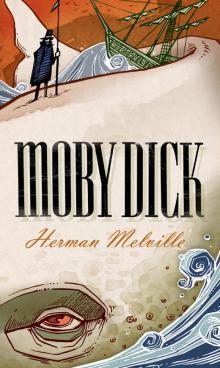 Moby Dick; Or, The Whale
Moby Dick; Or, The Whale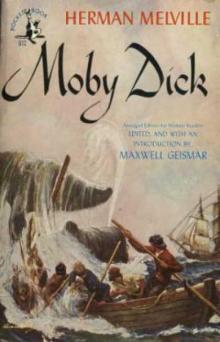 Moby Dick
Moby Dick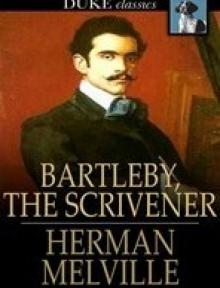 Benito Cereno and Bartleby the Scrivener
Benito Cereno and Bartleby the Scrivener Israel Potter: His Fifty Years of Exile (Annotated Edition)
Israel Potter: His Fifty Years of Exile (Annotated Edition) Billy Budd and the Piazza Tales
Billy Budd and the Piazza Tales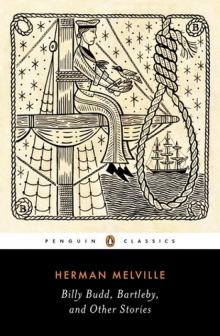 Billy Budd, Bartleby, and Other Stories
Billy Budd, Bartleby, and Other Stories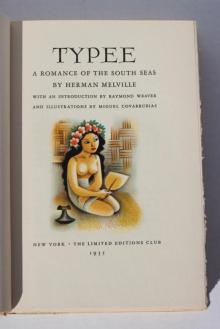 Typee: A Romance of the South Seas
Typee: A Romance of the South Seas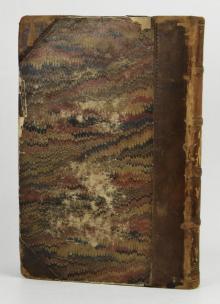 Omoo: Adventures in the South Seas
Omoo: Adventures in the South Seas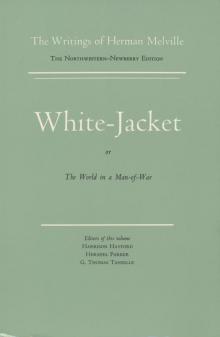 White Jacket; Or, The World on a Man-of-War
White Jacket; Or, The World on a Man-of-War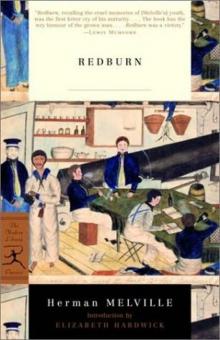 Redburn. His First Voyage
Redburn. His First Voyage Mardi: and A Voyage Thither, Vol. II
Mardi: and A Voyage Thither, Vol. II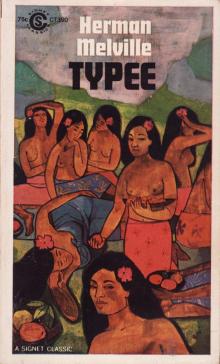 Typee
Typee The Paradise of Bachelors and the Tartarus of Maids
The Paradise of Bachelors and the Tartarus of Maids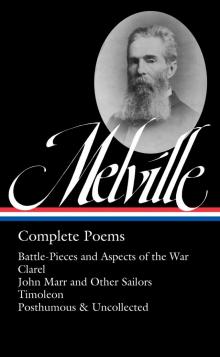 Herman Melville- Complete Poems
Herman Melville- Complete Poems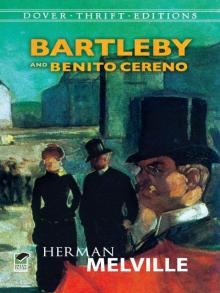 Bartleby and Benito Cereno
Bartleby and Benito Cereno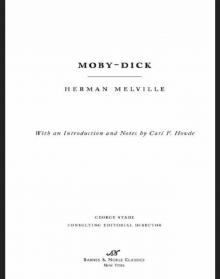 Moby-Dick (Barnes & Noble Classics Series)
Moby-Dick (Barnes & Noble Classics Series)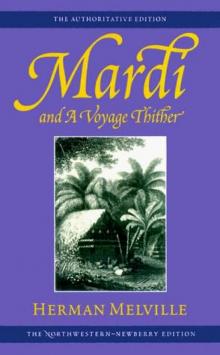 Mardi and a Voyage Thither
Mardi and a Voyage Thither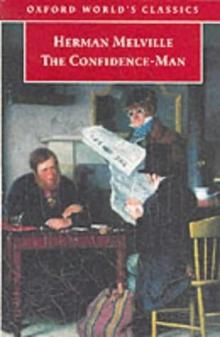 The Confidence-Man
The Confidence-Man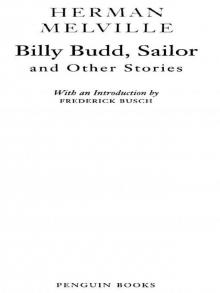 Billy Budd and Other Stories
Billy Budd and Other Stories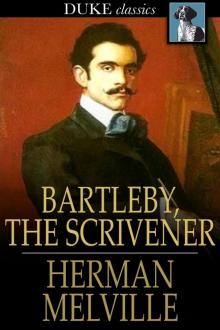 Bartleby the Scrivener
Bartleby the Scrivener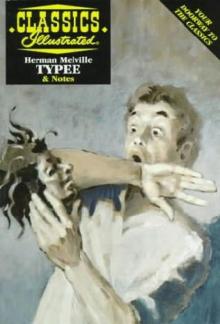 Typee: A Romance of the South Sea
Typee: A Romance of the South Sea I and My Chimney
I and My Chimney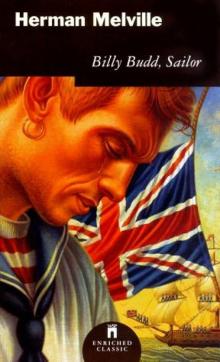 Billy Budd
Billy Budd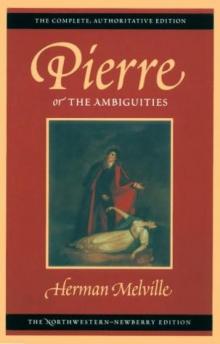 Pierre, Or the Ambiguities
Pierre, Or the Ambiguities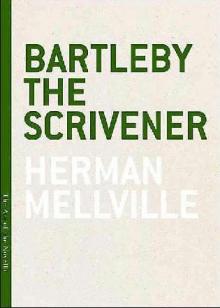 Bartleby, The Scrivener A Story of Wall-Street
Bartleby, The Scrivener A Story of Wall-Street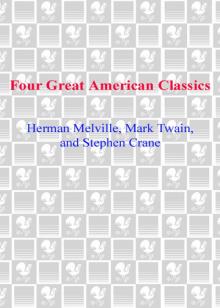 Four Great American Classics
Four Great American Classics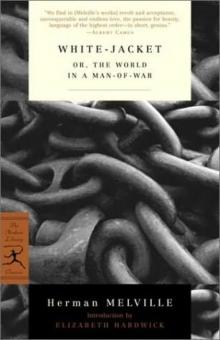 White Jacket or, The World on a Man-of-War
White Jacket or, The World on a Man-of-War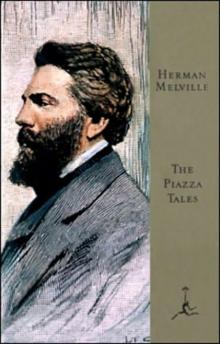 The Piazza Tales
The Piazza Tales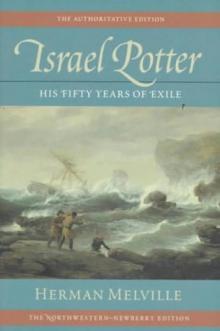 Israel Potter. Fifty Years of Exile
Israel Potter. Fifty Years of Exile